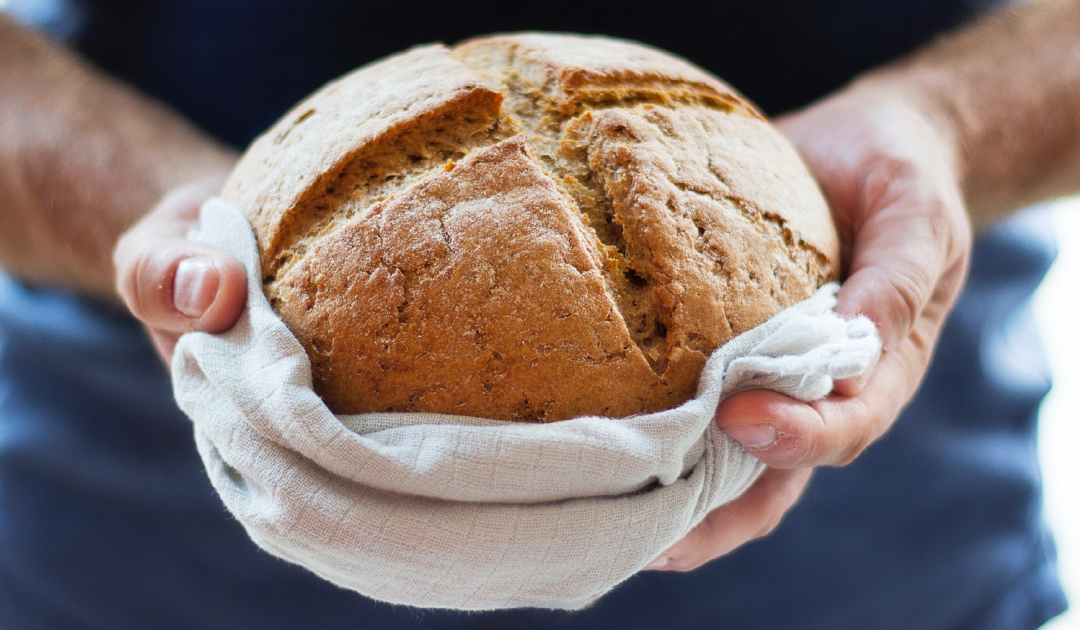Should you go gluten-free?
The Goods on Gluten-Free – Should You Try It?
One of the most talked about nutrition topics of the past couple of years has been whether or not gluten should have a place – or be forbidden – in our diets. Until recently, even the word ‘gluten’ would have been used almost exclusively in culinary, confectionary and severe allergy professions alone. But, due to the recent increase in understanding about gluten, its properties, and health effects, the idea of going gluten-free has gained major popularity and as an understandable result, has left many people wondering whether or not gluten-free is the way to go in their own lives. If you’ve been curious about gluten, even if you’ve already experimented with gluten-free living, it’s important to have a good understanding of the basics around the topic, so you can make informed decisions about the nutrition you and your family access.
What is gluten anyway?
Gluten is the name of a family of proteins found in wheat and wheat related grains such as barley and rye. Gluten itself is what enables foods made of ingredients to hold their shape. They act almost like ‘glue’ to give foods texture and hold it together. It can be found in many foods, even where you might not expect it.
There are three big categories of grains that are known as ‘glutinous grains.’ These include:
1. Wheat (including wheat berries, durum, emmer, semolina, spelt, farina, farro, graham, kamut, and einkorn)
2. Barley
3. Rye
Things like breads and crackers, pastries, pastas, cereals, beer, soups and sauces (which could contain grains or flours as thickeners), brewer’s yeast, and food colouring are some foods and beverages that contain these grains and therefore naturally contain gluten. But, sometimes, gluten itself is also used in other foods to act as a binding agent to give texture and hold to other ingredients.
Are most people allergic to gluten?
You may have heard that most people cannot tolerate gluten, or that grains today are different than the grains our ancestors used to eat. However, many studies have shown that in fact, grains and gluten are well-tolerated by the majority of people. That being said, there are three key groups of people who greatly benefit from removing gluten from their diets.
1. Celiac Disease Sufferers
Celiac disease, suffered by 1% of people, is a condition of the immune system in which eating gluten triggers an intestine-damaging response. Symptoms of celiac disease are serious and uncomfortable and include abdominal pain, skin rashes, headaches, diarrhea, vomiting, and even unexplained weight loss. In cases of celiac disease, it’s imperative for the individual to remove all sources of gluten from their diets as well as from any personal care items they use, since some of the unlikely sources of gluten can include lipsticks and balms, body and handy creams and cosmetics which could introduce trace amounts of gluten that would trigger a reaction. Often, celiac sufferers may not improve by gluten elimination alone and require a healing treatment to their damaged intestinal lining, not to mention supporting their immune system; contact us to develop a plan to help you there…
2. Non-Celiac Gluten Sensitivity
While celiac disease is rare, the percent of people who suffer from non-celiac gluten sensitivity (NCGS) is unknown and triggers similar symptoms. Unfortunately, because validated biomarkers or tests have not yet been developed, accurate diagnosis of this condition is still challenging. That said, it’s still important for this group of people to remove gluten from their diets to ensure they are not taxing their immune systems unnecessarily. One test that can be helpful to identify those in this group, is a ‘zonulin antibody’ blood test which we can arrange at our clinic.
3. Those with Other Gut and Auto-immune Disorders There’s still a third group of people who also benefit from removing gluten – those who suffer from other gut-related illnesses such as IBS (irritable bowel syndrome), Crohn’s disease, ulcerative colitis as well as a hot of auto-immune disorders such as lupus and vitiligo, etc.
What do I need to know to go gluten-free?
Whole grains do contain a number of important nutrients, such as fiber, iron, calcium, magnesium, zinc, folate, niacin, riboflavin, vitamin B12 and protein. So when deciding to remove gluten-containing whole grains from your diet, be sure create a robust diet that can replace these and/or take supplements to add to your security. Know too, that many gluten-free substitutes like cookies, brownies and breads usually contain higher levels of fats, sugar and salt than their conventional counterparts. If you crave the comfort of baked goods or cereals, we recommend creating your own gluten-free versions at home for the healthiest alternative from whole-foods based ingredients (not processed replacement gluten-free flours).
Going gluten-free will take time, patience and practice – we know, because we’ve helped dozens of families do it with success! Sometimes you don’t even realize how much gluten is affecting your system until you eliminate it. Check our Facebook page where we feature monthly gluten free recipes and you’ll find a few tried and true favourites to get you going. If you suffer from symptoms such as constant stomach pain, headaches, bowel issues or other symptoms that could be related to gluten sensitivity, please book an appointment so we can properly test you for celiac disease and non-celiac gluten sensitivity. We want to make sure you’re living your healthiest life possible! If not, but you’d still like to explore the health benefits of removing gluten, we’d love to help you make a plan to get your health back on track by managing your gut health.
To your good health, Dr. Habib ND Naturopathic Doctor
Alcohol, is any amount safe?
Alcohol: Is Any Amount Safe? A glass of wine with dinner, a beer after a hard day of work. It’s not hard to integrate an occasional drink with a healthy lifestyle. Or is it? In recent years, we’ve read that red wine is rich with antioxidants, and that an occasional...
Are you WAVE aware? Electromagnetic fields
Are You Wave Aware? Tips to deal with electromagnetic fields Most of us are aware of the effects of smog on a hot summer’s day - we can see it, we can feel it and our cities even have warning systems in place to alert us when the air quality is poor. However,...
5 ways to rev up your energy
5 Ways to Rev Up Your Energy!One of the best indicators that you’re having a great day is the feeling that your energy is high, steady and that overall you feel good and can enjoy accomplishing the tasks at...
Is your thyroid working properly?
Is Your Thyroid Working Properly? Did you know that a tiny, butterfly-shaped gland nestled in your throat is responsible for producing and regulating some of the most important hormones in your body? This mighty gland is called the thyroid and while it’s...
Is your brain getting the right fats?
Are You Feeding Your Brain The Right Fats? If you believe that eating fats and oils is a no-no, you might be in for a surprise. Fat is a vital component to a balanced diet and is a...
How to know if you are overloaded with toxins
How to Know if You are Overloaded with Toxins? The body is a miraculous thing. For all the body’s parts and abilities there are corresponding systems designed to monitor what they’re experiencing and then decide whether what the body is experiencing is beneficial or...
Staying healthy while travelling
How to Stay Healthy While Travelling With winter in full swing now is the time our minds wander to warmer climates - and the opportunity to travel to them isn’t far behind! While we often seek out sunny destinations for a brief reprieve during these colder months,...
Lectins – What are they? Love them or leave them?
Lectins - What Are They? Love Them or Leave Them? We’re all familiar with that schoolyard rhyme: “beans, beans, they’re good for your heart….” As adults we roll our eyes, but have you ever wondered where the rest of that rhyme came from, or why foods like legumes are...

Do you have a ‘leaky gut?’
Do you have a Leaky Gut? If you’ve been searching for the root of on-going health issues that just won’t go away, the kind where your doctor - and maybe even your second and third doctor - have tried everything in their arsenals but have come up with only...

How to Get Glowing Skin from the Inside Out
Beautiful, healthy, glowing skin - is there anyone who doesn’t want that? A balanced complexion isn’t just beautiful, it can also signify the state of your health, youthfulness, even your happiness or stress level. Of course, these messages are happening on a...



